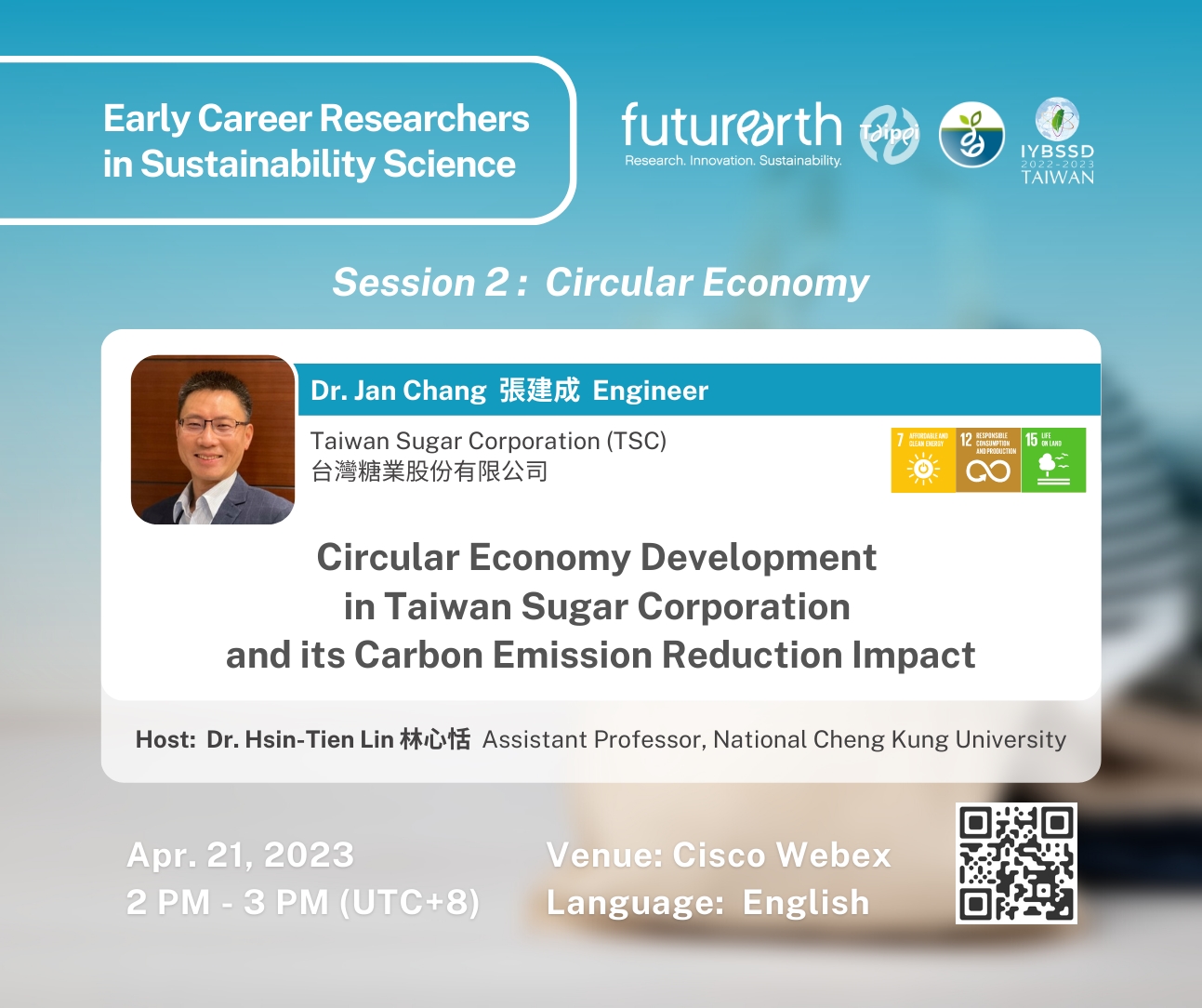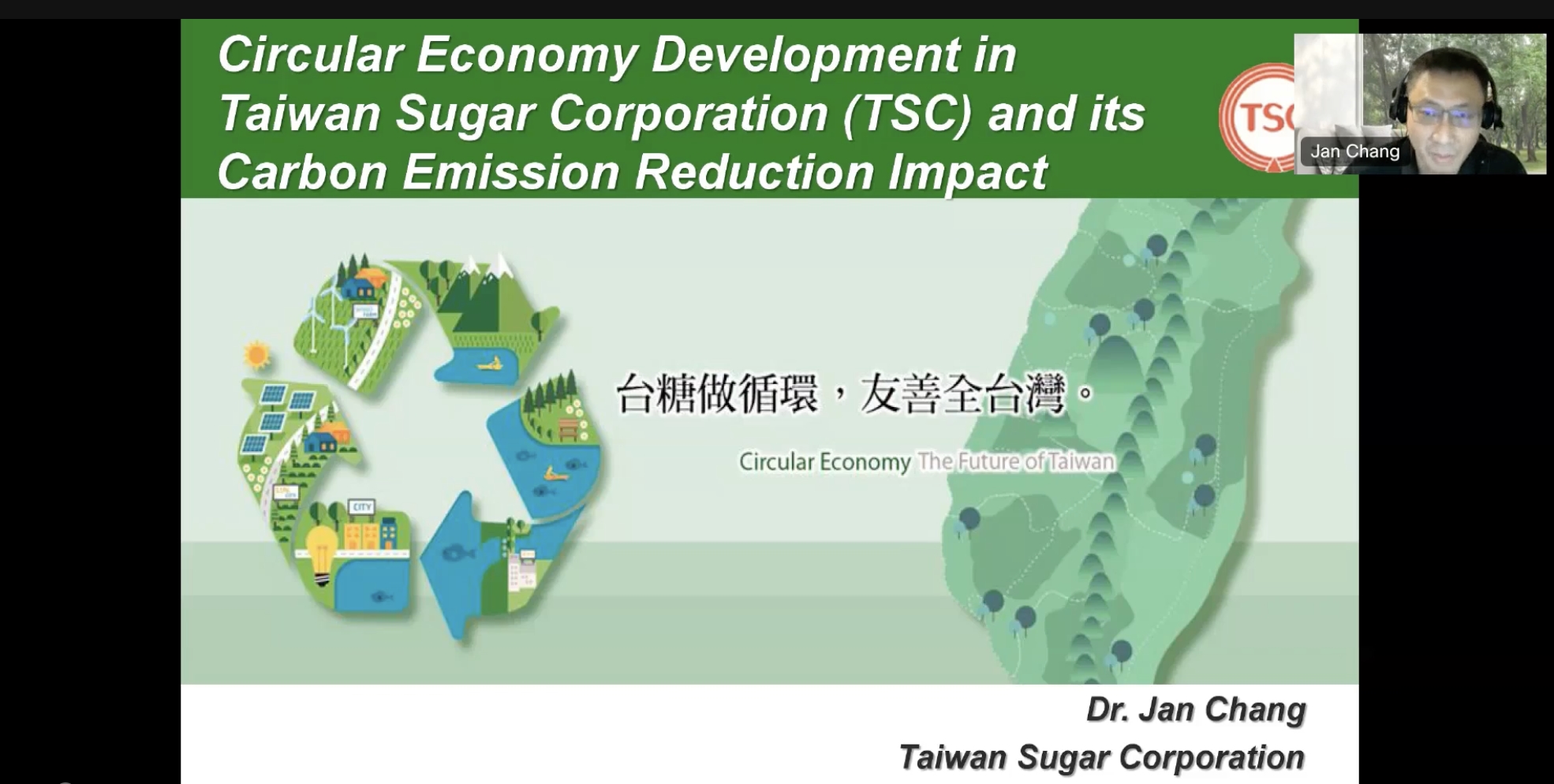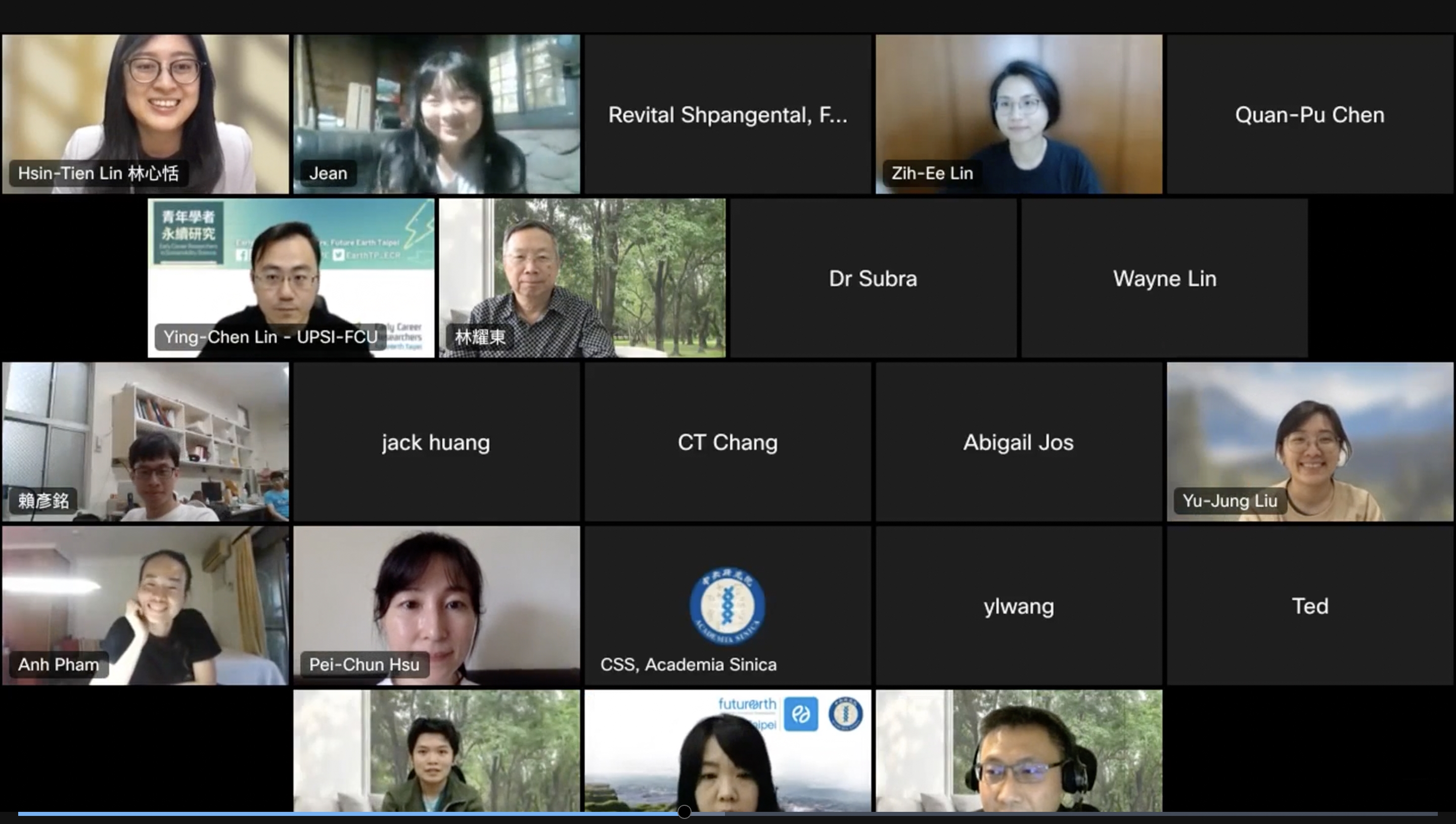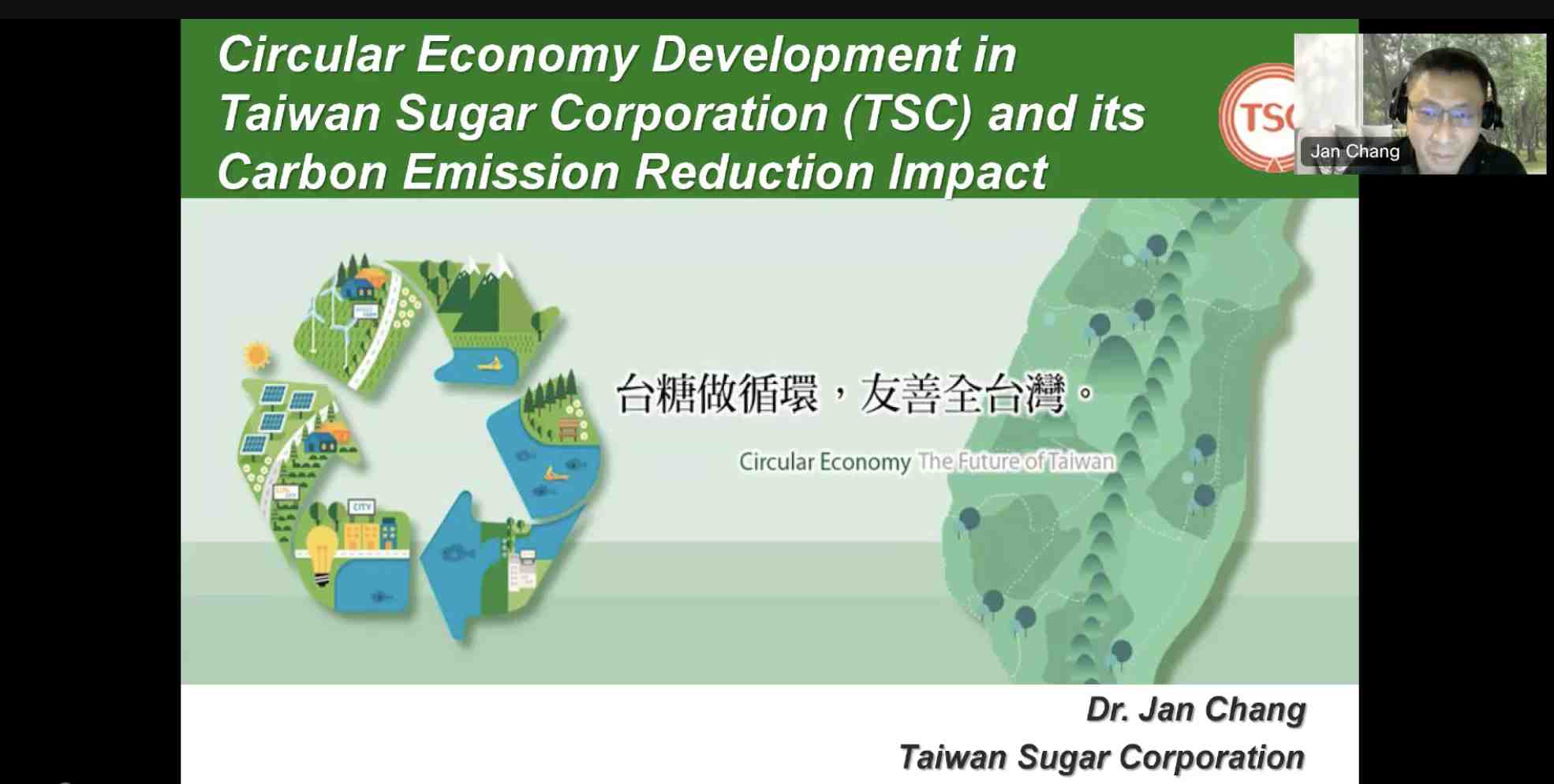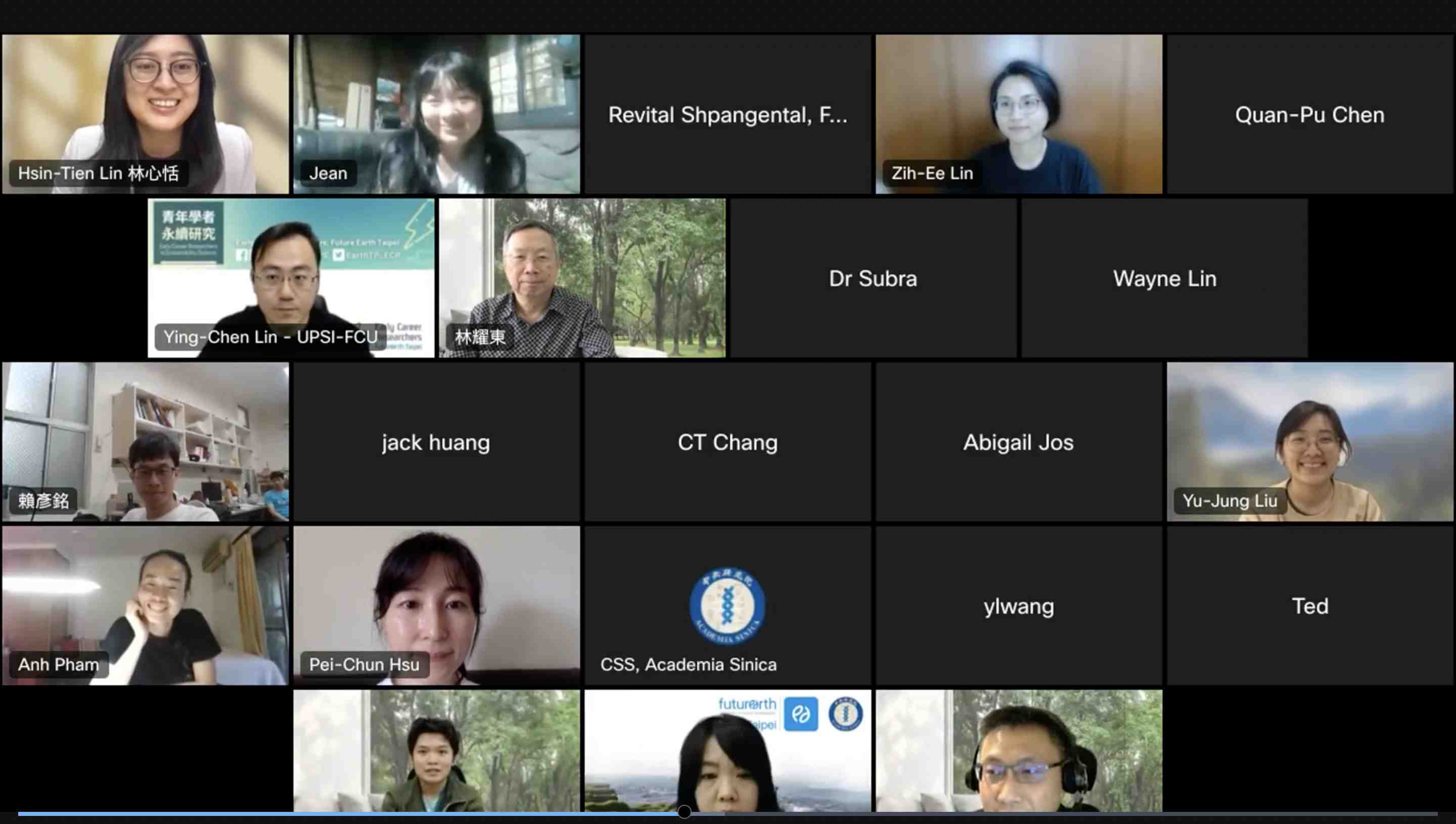2023/4/21 〖Circular Economy〗— ❐ S2-2 Circular Economy Development in Taiwan Sugar Corporation and its Carbon Emission Reducti
Taiwan Sugar Corporation (#TSC) is a time-honored and state-owned enterprise in Taiwan that focuses on the production and sales of sugar and sugar byproducts. Following the government’s 5+2 Innovative Industries Plan, TSC has set its core strategy as “promoting new agriculture and moving towards circular Taiwan”. For instance, Bagasse from the sugar production process can be used as fuel for the sugar refinery.Currently, TSC has 4 major circular economy projects that are continuously operating. They are Dong Hai Feng Agricultural Circulation Park, Oyster Shell Biomaterial Plant, Taisugar Circular Village, and Sugar Making Industry. All of the projects are consumer-oriented, and will hopefully lead toward a circular Taiwan and a circular world.
Activity Goals aligned with SDGs Projects



Goal
Science for All、Science Cultivation、Public Engagement
Type of event
Seminar/Forum/Lecture
Organizer
- ECR working group
Future Earth Taipei - Future Earth Taipei Hub - IYBSSDXTAIWANIYBSSDXTAIWAN - 中央研究院 永續科學中心 Center for Sustainability Science
Academia Sinica
Event Audience
Sugar Corporation and its Carbon Emission Reduction Impact
Contact
Telephone Number
27872536
dolly0105@gate.sinica.edu.tw
Result
At the meeting, TSC introduced some of their specific measures in practical cycle economy. One of the important projects is the Shalun Circular Village, a comprehensive community that integrates housing, business and agriculture. With biological cycle as the core, the target of zero waste is achieved through production, consumption and regeneration. The Shalun Circular Village realizes organic circulating agriculture by planting vegetables, fruits and vanilla in residential areas. At the same time, it is composting by recycling kitchen waste and garbage to regenerate organic fertilizer for planting.Another important circular economy project is the oyster shell factory, which is a factory that extracts calcium and other useful ingredients from the oyster shell. A large amount of oyster shell can be converted into high -quality calcium powder, which can be applied to agriculture, buildings and other industries. At the same time, the oyster shell factory can also extract the collagen in the oyster shell to make drugs, cosmetics and other products.In addition, TSC also introduced some of their specific plans to reduce carbon emissions and improve resource efficiency. One of the important measures is to implement the material cycle during the production process, and reduce the consumption of natural resources by recycling and reuse the waste generated during the production process. In addition, they also implemented a water circulation plan to achieve water -saving effects through the water in the process of recycling and reuse. At the same time, TSC also reduces carbon emissions through measures such as improving energy utilization efficiency and renewable energy sources to achieve carbon reduction targets.Finally, TSC also proposed a roadmap for developing high -value CACO3 products and creating a biotechnology market platform. This will help promote the company's continuous innovation and progress in circular economy and green development.
Number of Participants24人
Featured events
Contact Us
- Tel: 02-7749-6818
- Email: iybssdtw@gmail.com
Adviser

自然科學及永續研究發展處
Organizer
國立臺灣師範大學科學教育研究所、自然科學及永續研究推展中心、國立成功大學材料科學及工程學系、台灣物理學會、中國化學會
Co-organizer
中央研究院永續科學中心、中原大學物理學系、中華民國數學會、行政院原子能委員會、財團法人國家實驗研究院國家高速網路與計算中心、財團法人國家衛生研究院、高雄市政府教育局、國立中央大學科學教育中心、國立中正大學科學教育中心、國立成功大學科學教育中心、國立自然科學博物館、國立東華大學科學教育中心、國立科學工藝博物館、國立海洋生物博物館、國立海洋科技博物館、國立高雄大學科學教育中心、國立高雄師範大學、國立清華大學跨領域科學教育中心、國立彰化師範大學、國立臺灣大學科學教育發展中心、國立臺灣科學教育館、國家衛生研究院、淡江大學科學教育中心、逢甲大學綠能科技暨生技產業發展研究中心、臺北市政府教育局、臺灣永續棧、臺灣海洋聯盟、臺灣港務股份有限公司
